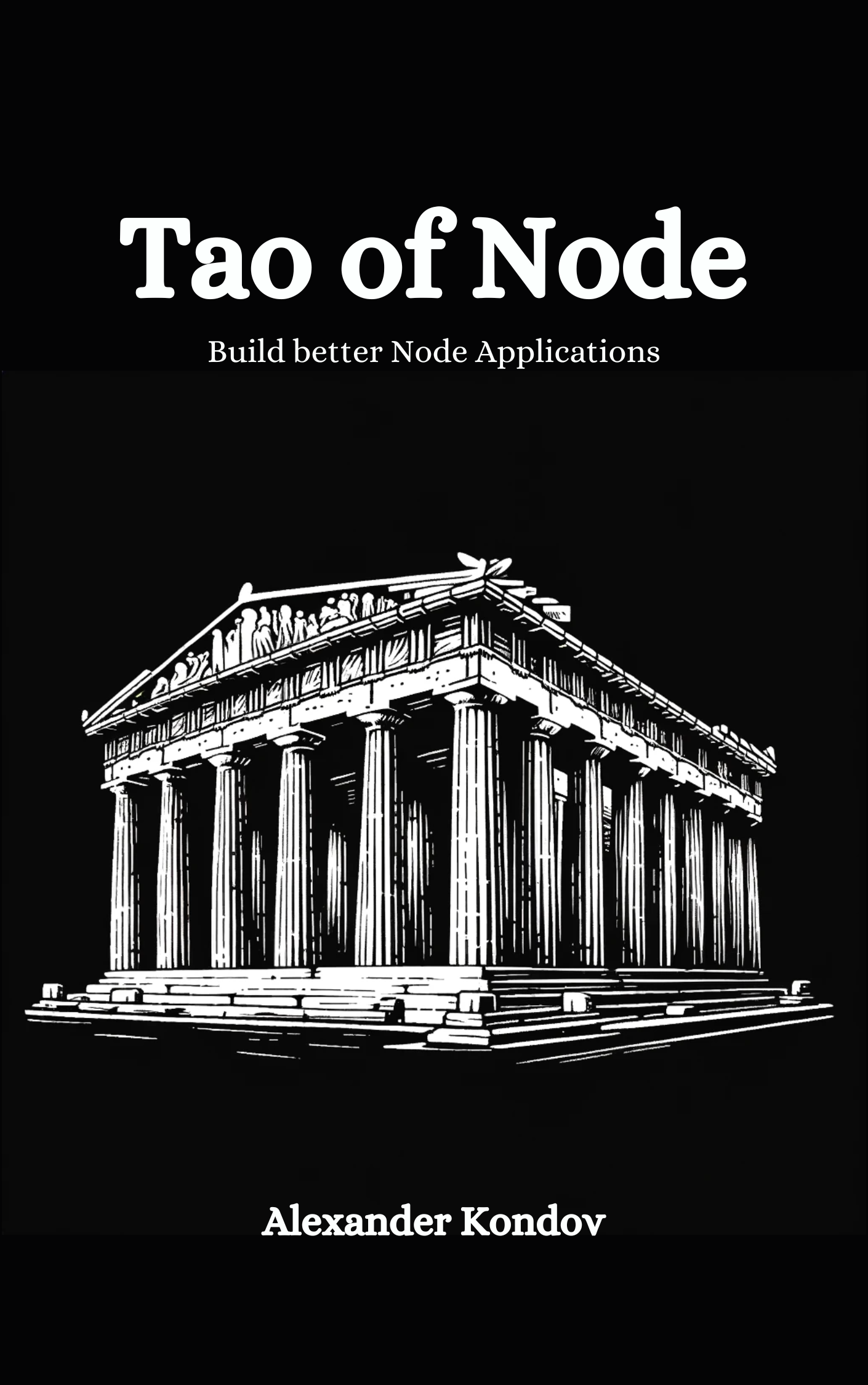Timeless Principles for Building REST APIs
Tao of Node
125 evergreen rules for building Node.js applications.
6 chapters · 190 pages · $19

Frameworks change. Principles don't.
This book focuses on timeless software design principles — not the framework of the month. Whether you use Express, Fastify, or whatever comes next, these rules still apply.
Structure your codebase, separate business logic from HTTP, write tests that survive refactors, and avoid the performance pitfalls that catch most teams off guard.
For developers who know the basics and want to build production software.
Principles, not tutorials
// Avoid handlers with many responsibilitiesconst handler = async (req, res) => {const { name, email } = req.bodyif (!isValidName(name)) {return res.status(httpStatus.BAD_REQUEST).send()}if (!isValidEmail(email)) {return res.status(httpStatus.BAD_REQUEST).send()}await queryBuilder('user').insert({ name, email })if (!isPromotionalPeriod()) {const promotionalCode = await queryBuilder.select('name').from('promotional_codes').where({ target: 'new_joiners' })transport.sendMail({// ...})}return res.status(httpStatus.CREATED).send(user)}
// Handlers should only handle HTTP logicconst handler = async (req, res) => {const { name, email } = req.bodytry {const user = userService.register(name, email)return res.status(httpStatus.CREATED).send(user)} catch (err) {return res.status(httpStatus.INTERNAL_SERVER_ERROR).send()}}
What's inside
Architecture
Structure, abstractions and business logic that make a codebase modular and extensible.
Tooling
Frameworks, databases, logging, monitoring and the supporting tools for your next project.
Testing
Principles that help you maintain quality and stability as your application grows.
Performance
Core performance principles to keep your services fast.
Serverless & GraphQL
Best practices for two technologies with great Node.js support.
Scenarios
Common problems and patterns — from extracting a microservice to refactoring existing projects.
Get the book
You buy me lunch and I tell you everything I know about Node & Express.
$19
eBook · 6 chapters · 125+ rules · 190 pages
Not sure? Read a third of the book for free — read by 20K+ people, featured on Hacker News, JS Weekly and Node Weekly.
About the author

Alexander Kondov
Software engineer, writer and author of Tao of React. I've used Node.js in both startups and large corporations and I want to help others learn the best practices around it.